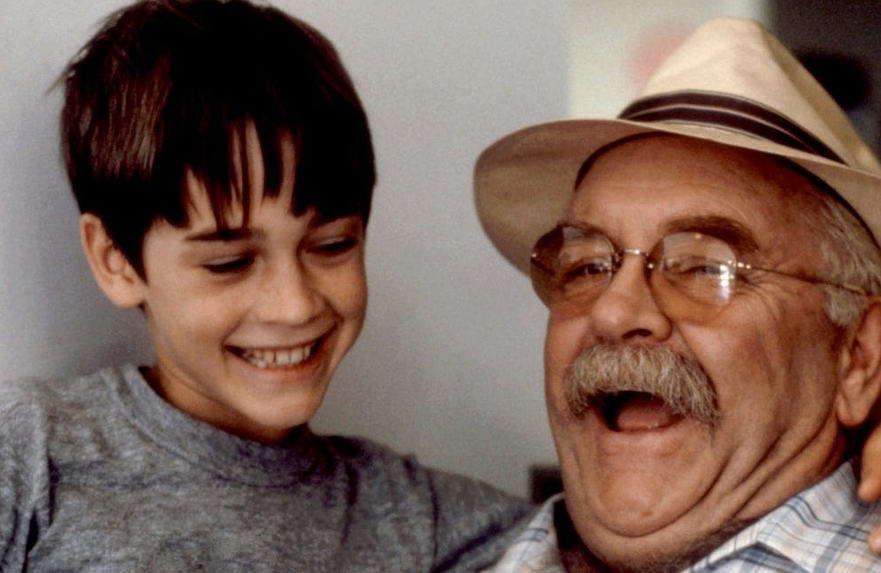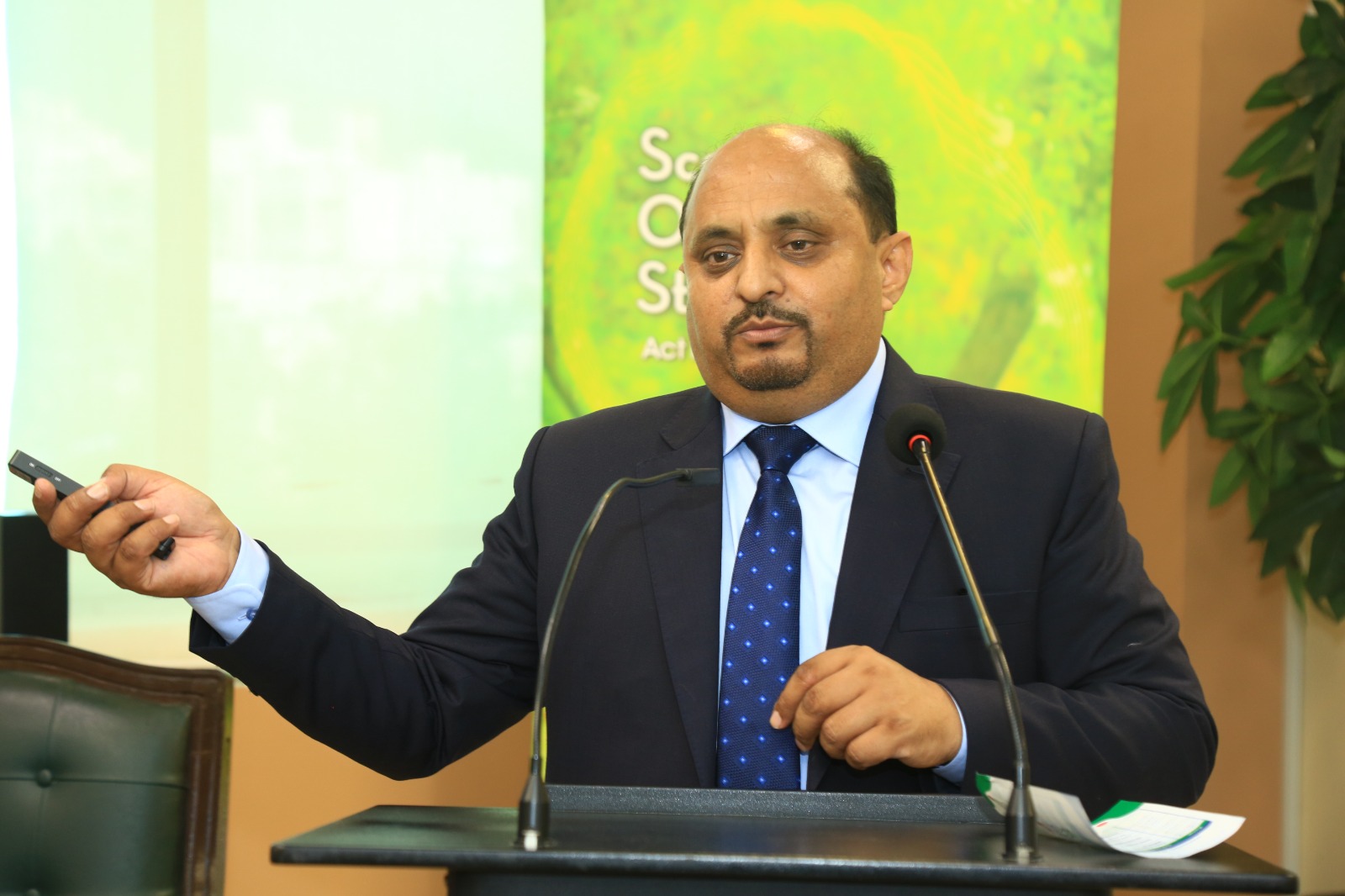
A francia szerző, Antoine de Saint-Expury emlékművében azt írta, hogy „egy kőhalom már nem kőhalom, amint egy ember elgondolkodik rajta, és beleveti egy katedrális képét”.
Az a fajta ember, akire ez eszébe jut, a képzelet és az akarat, hogy valami csodálatosat hozzon létre, ahol korábban semmi nem állt meg.
Ilyen férfival találkozunk Rawalpindiben, Punjab pakisztáni tartomány harmadik legnagyobb városában, ahol Dr. Hashim tanácsadó neurológus, stroke-specialista és a Fauji Alapítvány Kórház neurológia osztályának vezetője.
Amikor Dr. Hashim először 2018-ban érkezett ide, jó életet és virágzó karriert hagyott maga után Dubajban. Ha nem az idős szülei igényeit szolgálta volna, ott maradt volna. A Dubaj kiemelkedő Rashid Kórházának kiterjedt neurológia osztályával ellentétben, ami akkoriban a Rawalpindi Fauji Alapítvány Kórház neurológia osztályára került, egy junior neurológus, egy technikusból és egy apró szobából állt.
Dr. Hashim csalódottan látta, hogy a fejében egy stroke központ van, ahol a jövőben a stroke-os betegek a legmagasabb szintű ellátást kapnák. Amit nem vett észre, az az, hogy hány sziklát kell egyedül mozgatnia ahhoz, hogy ennek a víziónak a lényegét adja.
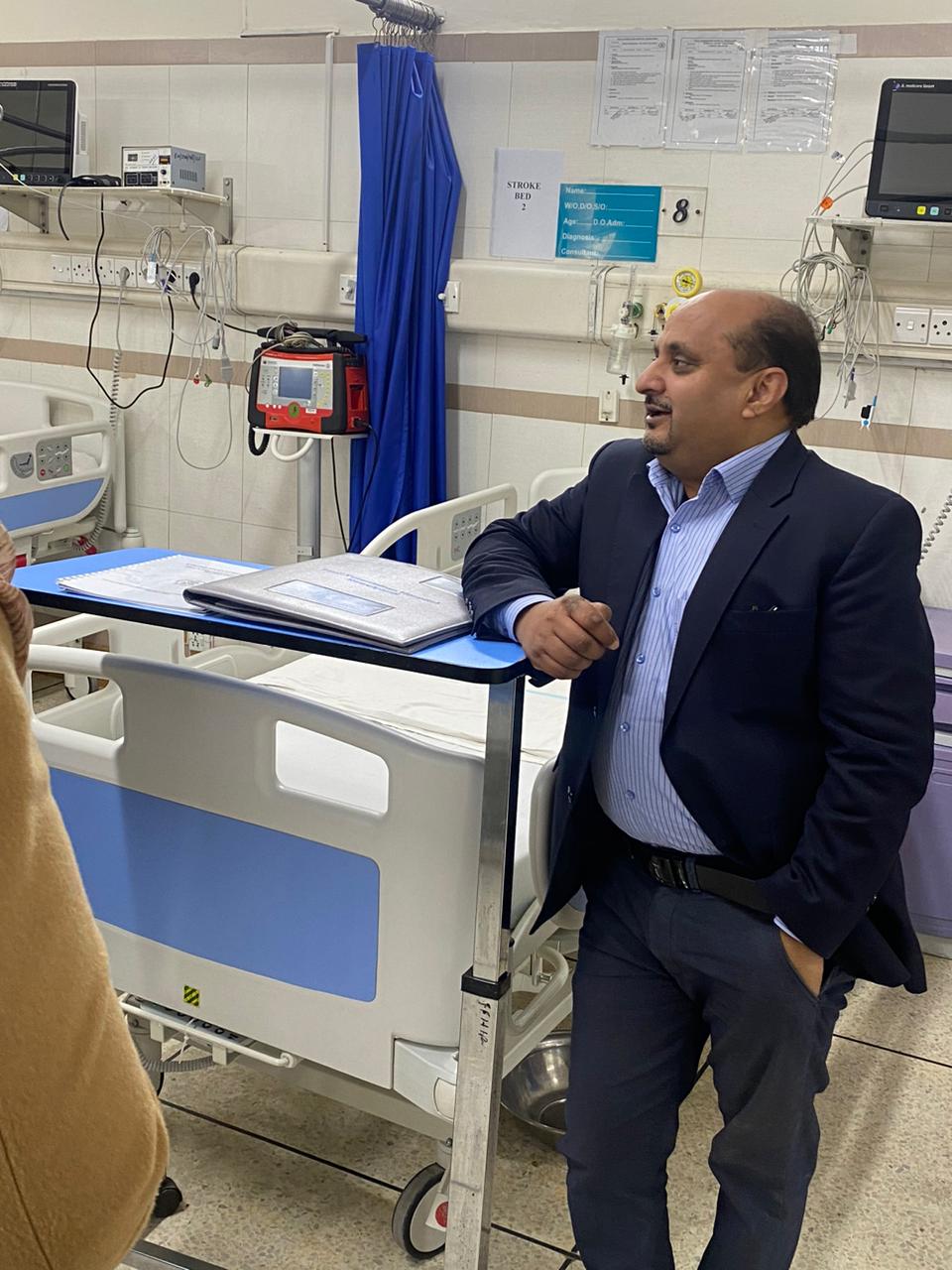
Dr. Hashim olyan „egyszemélyes hadseregként” ismerte, amely a kórházi körforgások kimerítő rutinjához kötődött, járóbetegként jár és neurofiziológiai vizsgálatot végez. Ahhoz, hogy hadserege növekedjen, orvosokat kellett vonzania, és nem kellett elveszítenie őket, mint ahogy az egymást követő alkalmakkor történt. A meglehetősen merész megoldás az volt, hogy neurológia osztályát egy rezidensképző központtá alakította, ami egy évet vesz igénybe.
2020 júniusában érkezett meg a történelmi pillanat, amikor a pakisztáni Orvosok és Sebészek Kollégiuma engedélyezte Dr. Hashim ötéves neurológia rezidensprogramját. De a fordulópontok éppen ilyenek – ezek olyan pillanatok, amelyek új és más irányokhoz vezetnek, miközben az út még mindig előre halad. Most egy ismerős probléma merült fel. Rawalpindi városában már négy jól megalapozott neurológia osztály működött. Dr. Hashim vadonatúj programjának megnyerése kihívást jelentene.
2021 januárjában az első posztgraduális rezidens eltörte a jeget. Aztán jött egy másik, és mások követték. 2024 végére a program három neurológust fog előállítani, és további 15-öt fog bevonni, így a régió egyik legnagyobb programjává válik.
De ez messze volt az egyetlen változás, ami a Fauji Alapítvány Kórházban történt.
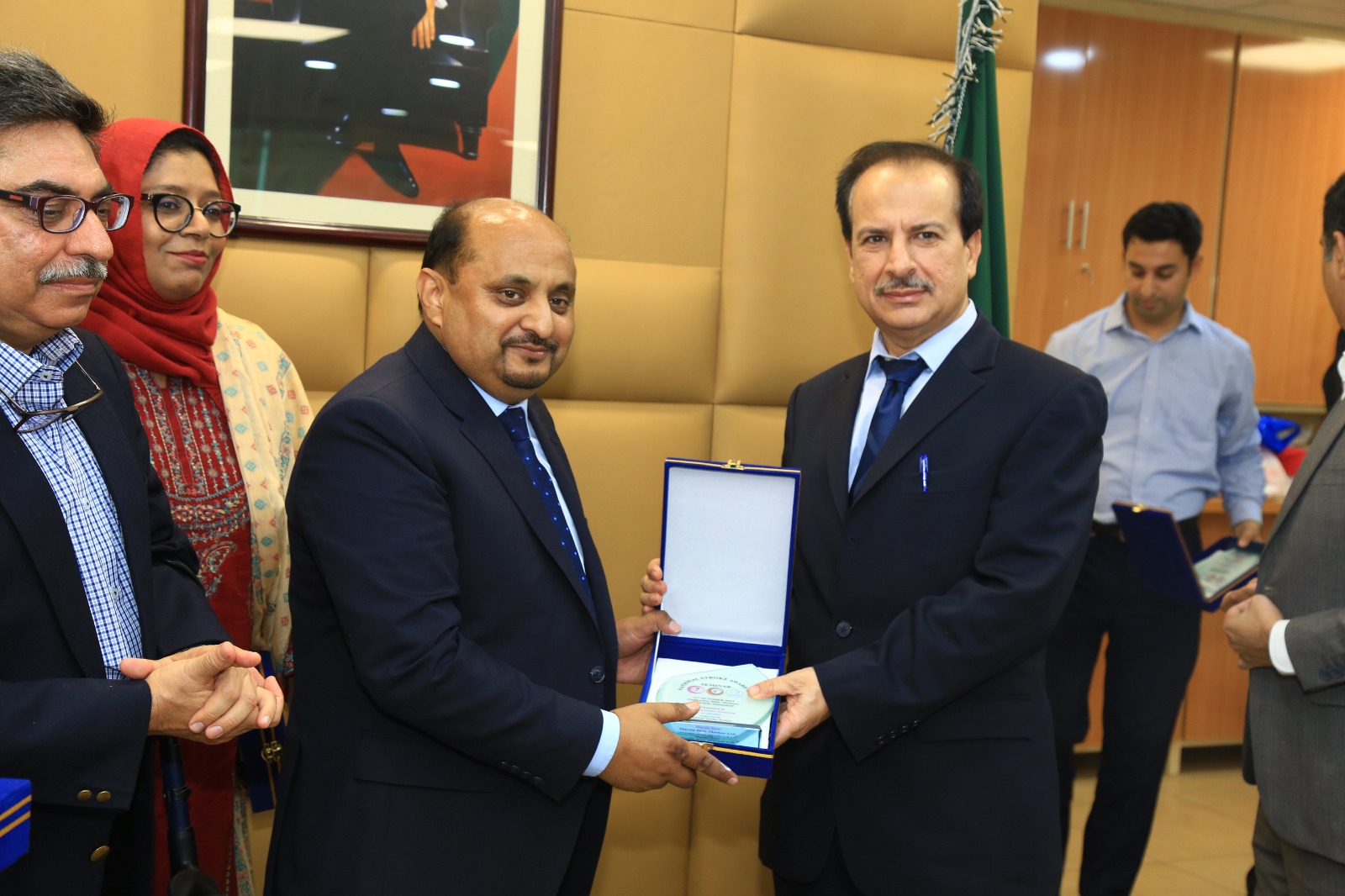
Dubajban Dr. Hashim abban dolgozott, ami akkoriban az egyetlen éjjel-nappali stroke-szolgáltató és az egyetlen dedikált stroke osztály abban a városban. Bár a trombolitikus r-tPA-t még néhány évig nem jegyezték be Pakisztánban, tudta, hogy bizonyítékokon alapuló akut ellátás biztosításával és a szövődmények elkerülésével csökkentheti a stroke halálozás és morbiditását. 2022-ben a kórházi adminisztráció megingathatatlan támogatásával kis stroke osztály faragott ki a magas függőségi osztályon, akut stroke-útvonalat vezetett be, és szövetséget hozott létre más szakterületekkel, beleértve a sürgősségi ellátást, a belgyógyászatot, az orvosi intenzív osztályt, a radiológiát, a kardiológiai és rehabilitáció részleget.
Dr. Hashim már nem egyszemélyes hadsereg volt. Miután Dr. Saeed Arif csatlakozott részlegéhez, a változás üteme erősödött, és 2023 több okból is lenyűgöző évnek ígérkezik: Az év januárjában Dr. Hashim osztálya trombolízissel kezelte első stroke beteg; megerősítés érkezett, amikor dr. Saima Shafait csatlakozott az osztályhoz; Dr. Hashim a Pakisztáni Stroke Társaság alelnöke lett, és nemzetközi stroke kongresszust szervezett, és a Fauji Alapítvány Kórház lett az első kórház Pakisztánban, amely elnyerte a A Stroke Világszervezet (WSO) Angels díja.
Amikor megkérdezi, mi motiválta arra, hogy a kőhalmot katedrálissá alakítsa, Dr. Hashim azt mondja, hogy ez azért volt, mert képes rá. Pakisztánban 200 millió embernek volt mély strokestrokeszolgáltatása, és a halálozás és a morbiditás tekintetében a helyzet „eltéveszthetetlen” volt. „Megvolt a hozzáértés, megvolt a hely, ezért meg kellett tennem.
„Dubaj egyik legjobb neurológia osztályát és stroke központját láttam és dolgoztam, és sok tapasztalatom volt neurológia és stroke szolgáltatások létrehozásában. Miután visszatértem és láttam Pakisztánban a neurológia és a stroke gondozás nagyon korlátozott erőforrásait, motivált, hogy ugyanolyan lelkesedéssel és elkötelezettséggel dolgozzak, mint az itteni szolgáltatások létrehozása.
„Nagyon keveset tettek a stroke és a neurológia területén, így sok hely és sok lehetőség volt. A közösségnek dolgozva erőt és motivációt kaptam ahhoz, hogy még nehéz helyzetekben is folytathassam.”
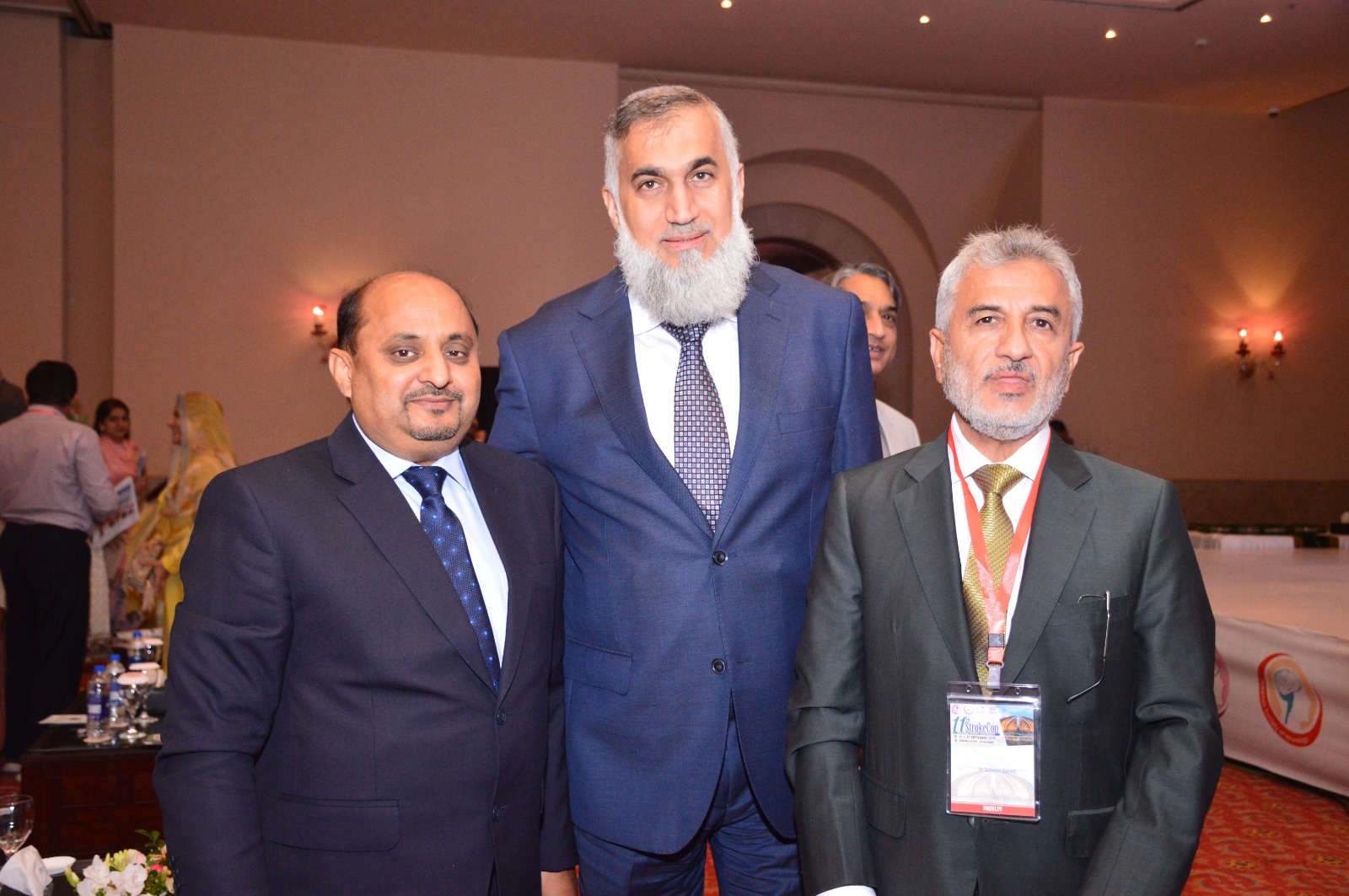
A saját lelkesedése és elkötelezettsége mellett két dolog segített Dr. Hashimnek az ország egyik legprogresszívebb stroke-szolgáltatásának megalkotásában. Az egyik jó vezetés volt, amelynek tanúja és tapasztalta Dubajban – különösen Prof. Dr. Suhail Abdullah Alrukn személyében, aki egyben a Közel-Kelet és Észak-Afrikai Stroke Szervezet, a MENASO elnöke is. „Számomra példakép” – mondja Dr. Hashim. „Nagy szerepet játszott abban, hogy megtanítson nekem egy csapat létrehozását és egy csapat vezetését.”
A másik egy olyan csapat volt, amelyre érdemes várni. „Szerencsés voltam, és jó embereket találtam” – mondja Dr. Hashim, alig várja, hogy a kreditet átadhassa a saját neurológus csapatának és lakosainak, valamint a Fauji Alapítványi Kórház számos kiemelkedő szakértőjének, akik a program fejlődésének okai.
Kötelezettségei is növekedtek. Dr. Hashim így nyilatkozott: „A Pakisztáni Stroke Társaság alelnökeként kötelességem nem csak a kórházamban, hanem Pakisztánban is stroke szolgáltatásokat nyújtani.” Amint látja, ez magában foglalja a képzést és útmutatást a régió más kórházainak, valamint Pakisztán nemzeti koordinátor az SITS nemzetközi stroke nyilvántartásban 2021 óta, bátorítva a többi központot a nyilvántartáshoz való csatlakozásra és díjak elnyerésére.
Dr. Hashim minden bizonnyal több WSO Angels-díjat is elnyert, és nem csak a saját kórházában, ahol 2024 első két negyedévében két platina díjat is nyertek. Az SITS nyilvántartásában több mint 15 pakisztáni kórház vesz részt, és Dr. Hashim videót készített arról, hogyan vehet részt az Angels díjprogramban.
A Fauji Alapítványi Kórház egyelőre az egyetlen kórház Pakisztánban, de Dr. Hashim megjósolja, hogy a következő negyedévben három vagy négy további kórház lesz, és a kórháza újabb álomba fog kelni – hogy megnyerje Pakisztán első gyémánt díj.


